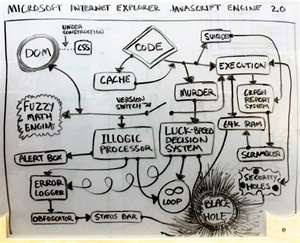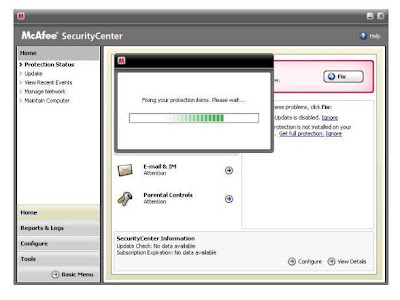-URL
URL is Uniform Resource Locater. It is address that the server connects to.
URL is Uniform Resource Locater. It is address that the server connects to.
The global address of documents and other resources on the World Wide Web.
URL helps one in eraching a domain without any favoritism or bias to the various similar sounding names one uses as a.k.a's/aliases due to the clutter existing.
-HTML
HTML stands for Hyper Text Markup Language. The predominant markup language for web pages.
Originally conceived as a simple markup language to render research documents on the Web.
HTML is the basic building-blocks of web pages.
HTML documents contain HTML tags and plain text.
Defines all the graphic elements used on the page, which are separate files on a local remote server.
-Javascript
Javascript is an interpreted programming or script language from Netscape.
Javascript is intamately tied to the World-Wide Web, and runs in only three environments.
That somewhat similar in capability to Microsoft's Vusual basic, Sun's Tcl, the UNIX-derived Perl,and IBM's REXX.
Ingeneral, script languages are easier and faster to code.
Ingeneral, script languages are easier and faster to code.
Javascript automatically change a formatted date on a Web page, cause a linked-to page to appear in a popup window, cause text or graphic image to change during a mouse rollover.
-Applets
Applet = Apple.
An applet is any small application that performs onc specific task that runs within the scope of a larger program, often as a plug-in.
Has limited features, requires limited memory resources, and designed to be dowloaded from the Internet to run on a web page.
In some cases, an applet does not run independently.
An applet cannot read or write data on the user's machine.
The word Applet was first used in 1993 by the application AppleScript.
-Blogs
A blog is a mixture of what is happening in a person's life and what is happening on the Web.
It is a kind of hybrid diary or guide site, although there are many unique types of blogs and people.
The modern blog evolved from the online diary, where people would keep a running account of their lives.
Blog is a Web page that serves as a publicly accessible personal journal for an individual.
Typically updated daily, blogs often reflect the personality,comment, hyperlinks provided of the author.
A typical blog combines text, images and links to other blogs, Web pages, and other media related to its topic.
-Wikis
A Wiki is a Web site that allows users to add and update content on the site using their own Web browser.
Wikis end up being created mainly by a collaborative effort of the site visitors. Allows anyone visiting a website and to edit content on it.
The term "wiki" comes from the Hawaiian phrase, "wiki wiki", which means " super fast".
Wiki supports hyperlinks and has a simple text syntax for creating new pages and crosslinks between internal pages on the fly.
A great example of a larger wiki is the Wikipedia.
-FTP
Short stand for File Transfer Protocol, the protocol for exchanging files over the Internet.
A communications protocol govering the transfer of files from one computer to another over a network.
FTP works in the same way as HTTP for transfering Web pages from a server to a user's browser and SMTP for transferring electronic mail across the Internet in that.
FTP uses the Internet's TCP/IP protocols to ebavle data transfer.
FTP servers can be configured to allow anonymous access.
-Plug-in
A hardware or software module that adds a specific feature or service to a larger system.
A software plug-in is an add-on for a program that adds functionality to it.
Plug-in applications are programs that can easily be installed and used as part of your Web browser.
A plug-in application is recognized automatically by the browser and its function is integrated into the main HTML file that is being presented.
Most graphics and audio programs today support plug-ins since they are a convenient way to expand the capabilities of the program.
A hardware or software module that adds a specific feature or service to a larger system.
A software plug-in is an add-on for a program that adds functionality to it.
Plug-in applications are programs that can easily be installed and used as part of your Web browser.
A plug-in application is recognized automatically by the browser and its function is integrated into the main HTML file that is being presented.
Most graphics and audio programs today support plug-ins since they are a convenient way to expand the capabilities of the program.
-Filters
A filter is a program or section of code that is designed to examine each input or output request for certain qualifying and then process it accordingly.
A filter is " pass-through" code that takes input data.
Usually, a filter does no input or output operation on its own.
Filters are sometimes used to remove or insert headers or control characters in data.
-Internet Security Suite
A suite of utilities for maintaining the security of a Windows PC from McAfee.
Formerly called McAfee Office, it includes more than a dozen utilities such as anti virus, personal firewall, spam blocker and pop up blocker.










No comments:
Post a Comment